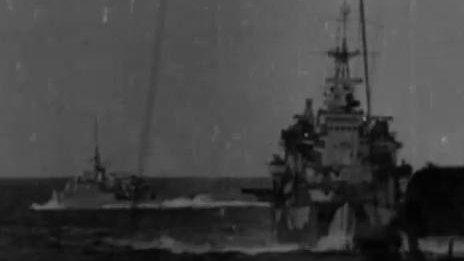Arctic convoy WWII veterans presented with medals
- Published
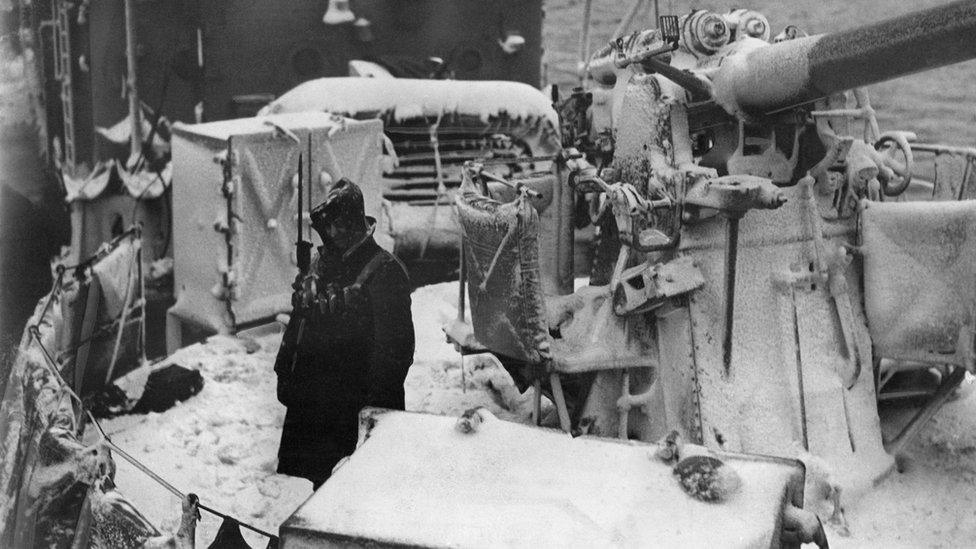
Conditions on the Arctic convoys were among the worst faced by any allied sailors
Veterans who transported vital supplies from Britain to Soviet ports have been presented with medals in recognition of their service during World War Two.
The Arctic convoys carried food and military equipment across treacherous seas to support the Eastern Front between 1941 and 1945.
Veterans from Hull and East Riding were honoured by the Russian government at a ceremony in Beverley.
Families of deceased veterans were also presented with medals.
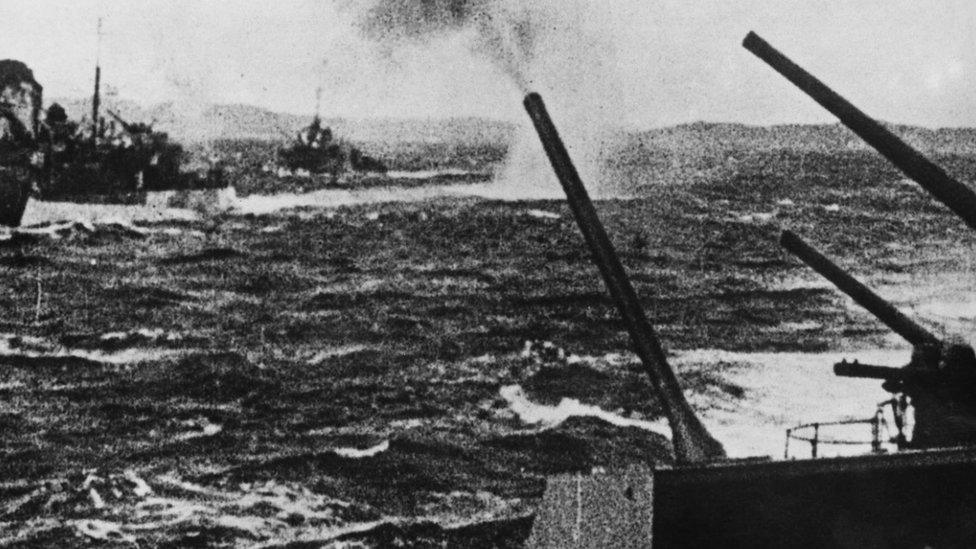
The convoys also faced the constant possibility of attack from German U-boats and aircraft
A total of 12 awards were given out, with four surviving veterans accepting theirs personally.
Among them was Frederick Moore, 90, who served on HMS Whirlwind.
Describing it as one of the "proudest days" of his life, he paid tribute to those who took part in the convoys alongside him, describing them as "the bravest men I have ever known".
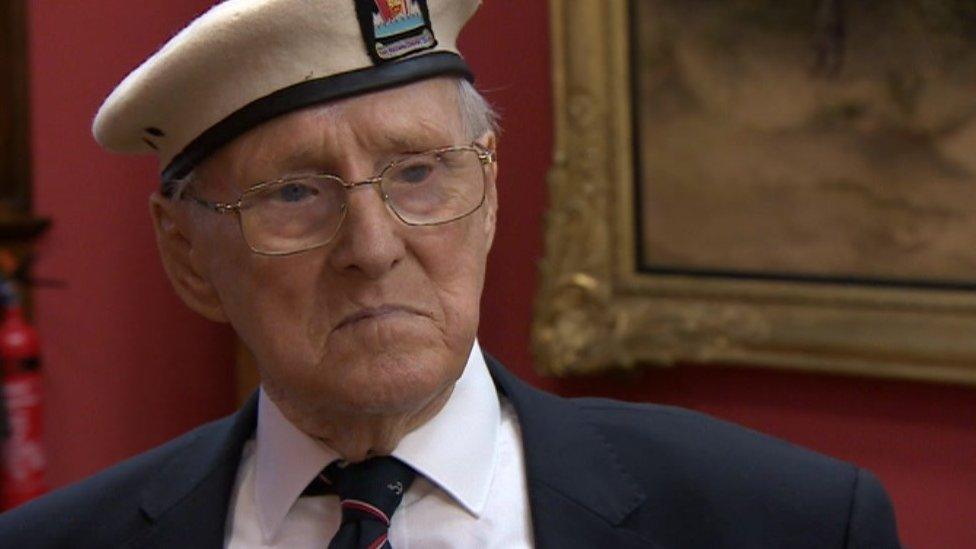
Frederick Moore said he was pleased to have been able to help his country's war effort
Freda Crawley collected a medal on behalf of her husband John, who died two years ago. He served on HMS Offa.
She said: "He would have been thrilled, and he was always aware of how Russia felt towards the men of the convoys, and he would have been most appreciative."
She added the crews in no way saw themselves as heroes, but more like "young lads on a great adventure".
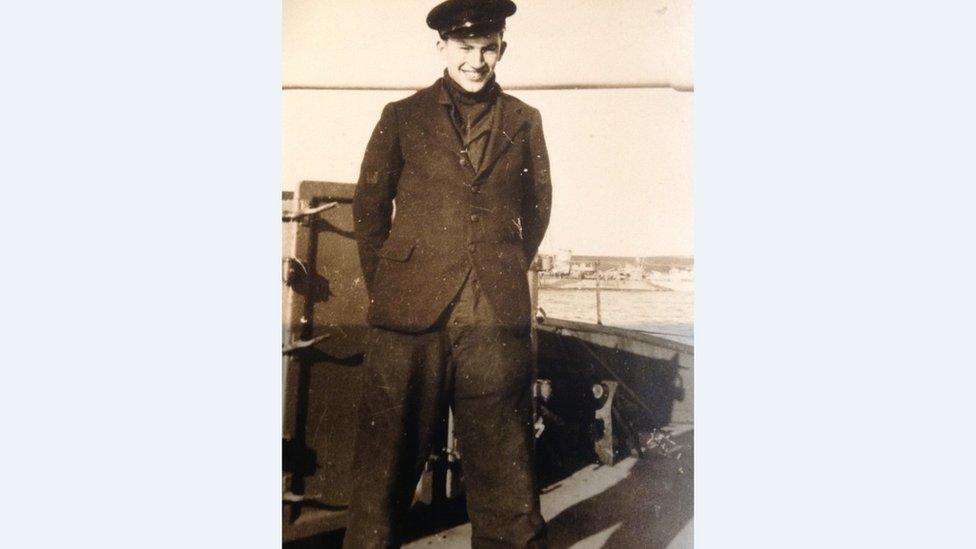
John Crawley was a radar operator and responsible for locating U-boats
Representatives from the Russian Embassy handed out the Medal of Ushakov and said the veterans deserved to be recognised for their part in "a most dangerous and difficult operation".
The medal is named after Fyodor Ushakov, an 18th Century naval commander who never lost a battle and is the patron saint of the Russian navy.

The Arctic convoys
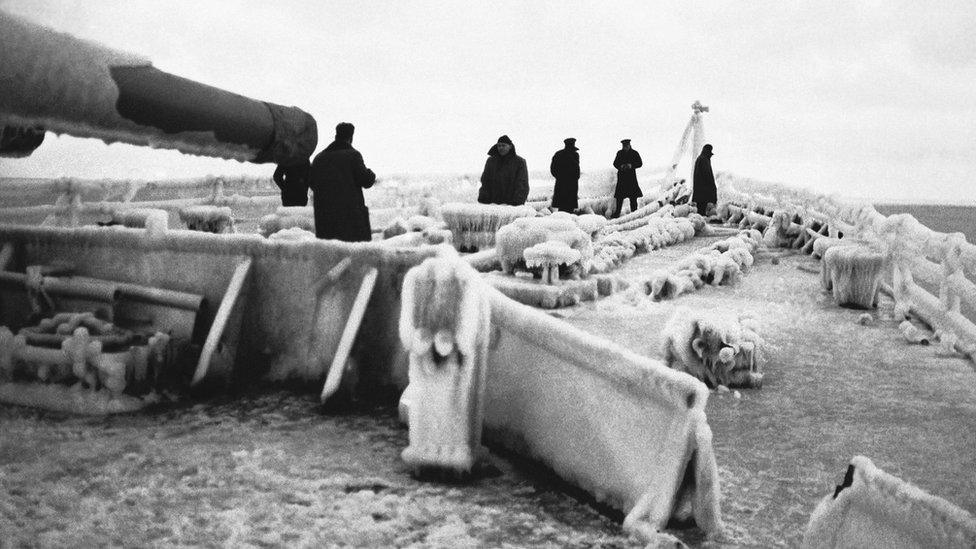
The Arctic Convoys transported four million tonnes of supplies and munitions to Russia between 1941 and 1945
A total of 78 convoys braved sub-zero temperatures and the German armed forces to get war supplies to the Soviet Union
The British Merchant Navy along with Russian, US, Canadian, Norwegian and Dutch merchant fleets were involved
By May 1945, the Arctic route had claimed 104 merchant and 16 military vessels
More than 3,000 Allied seamen lost their lives to the freezing conditions and attacks during the trips to ports in the Arctic Circle
- Published13 November 2016
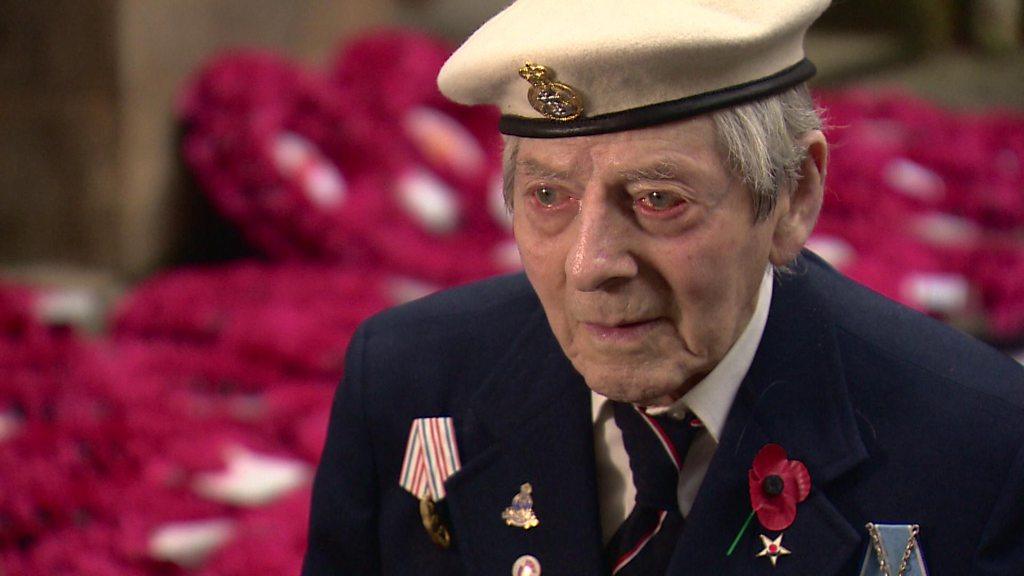
- Published18 August 2016
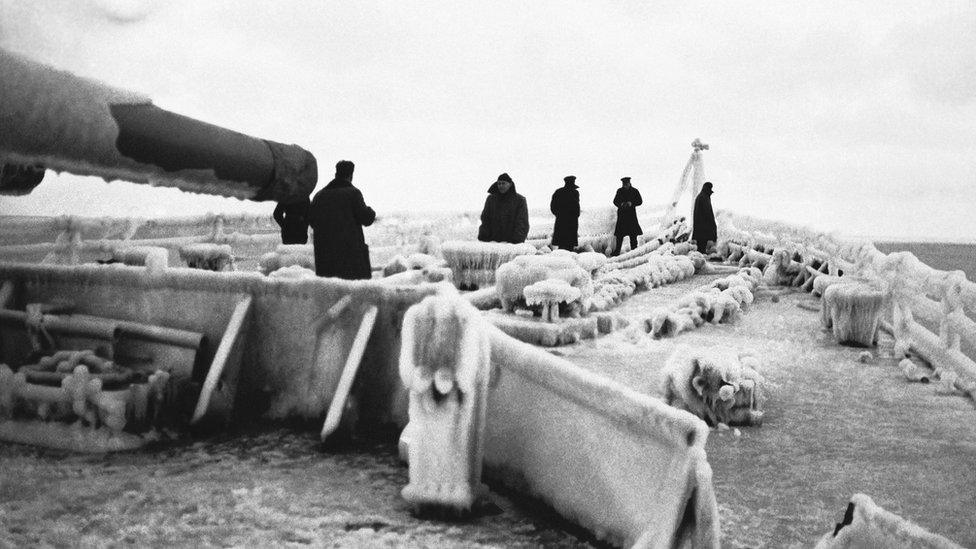
- Published28 May 2013
- Published19 December 2012
